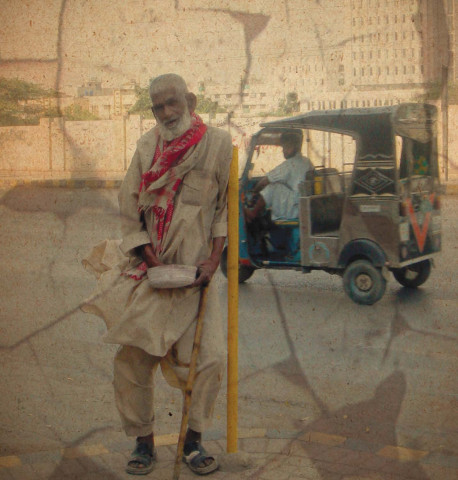Institutionalised beggary
Most living in Pakistan will encounter a beggar within the next 24 hours, but the issue still persists.

Trickle-down effect
Free market capitalism often rests its hopes on trickle-down economics which suggests that even though the disparity of wealth is much higher in capital markets, wealth trickles down and creates a better standard of living for everyone. As such it is possible to argue that giving alms to street beggars synthesises the trickle-down effect and alleviates the standard of living for all involved. This argument although valid, does not apply to professional beggars who operate systematically and deliberately without a dire need.
Consumer votes
Every rupee spent on a good or service, is in effect a vote cast for the continued production of that good. If people seek out controlled substances, a black market develops. Conversely, if people stopped buying cigarettes altogether, the industry would dissipate overnight. Begging continues to thrive because of the votes being cast every day in favour of it.
This has led to systematic growth and seasonality within the profession. Each year around Ramazan, a large number of beggars flock to the cities to collect alms. Fridays generally see higher volumes of beggars flocking to the city centres as do the evening rush hours when white collar workers return home.
Socio-economic impact
Beggary does not contribute any economic value nor does it in anyway add to the alleviation of society. Instead it competes with other professions such as chauffeuring, cooking and general labour since the income prospects for beggars can be much higher.
Over the years, the begging profession has continued to grow rather than diminish. It now also encompasses children, eunuchs, windshield cleaners and others masquerading as vendors for toys, flowers and newspapers. These latter guises have in turn given a further rise to beggary since these are grey areas even though the vendors often rely on the generosity rather than margins.
The profession is not bound by any age limits either which often leads to children starting out early and operating in groups or under distant vigilance to counteract the age-deficit. As a consequence, professional beggars seek a higher birth rate to raise the overall income potential for the household which exacerbates the problem even further.
Under such circumstances, it might be far more responsible to institutionalise charity and popularise initiatives such as micro-financing which also relies on small donations but does so responsibly.
Published in The Express Tribune, September 27th, 2010.


















COMMENTS
Comments are moderated and generally will be posted if they are on-topic and not abusive.
For more information, please see our Comments FAQ